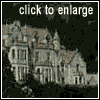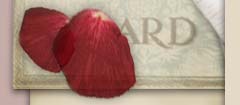Home > War Bride Stories > Johan (Hillis) DeWitt
 |
| Click image for larger view. Johan Dewitt in her Land Army Uniform. Photo courtesy of Johan Dewitt. |
 |
| Click image for larger view. Johan Dewitt today. Photo by Melynda Jarratt. |
 |
| Click image for larger view. The Dunira Estate, where Johan Dewitt worked with the Land Army. |
During the Second World War, more than 100,000 British and European women married Allied soldiers from Canada, the United States, New Zealand and Australia. Called "War Brides", thousands of these women were from Scotland. Their stories of meeting husbands and coming to a new country to raise families of their own are a fascinating - but little known - part of Scottish history.
Johan (Hillis) DeWitt was just a teenager in Glasgow and full of spunk when the Second World War broke out. For Johan, it was an interesting, but frightening time to be growing up in Scotland.
German Air Force bombers made nightly sorties over England and Scotland during the Battle of Britain between August 1940 and September 1941. As one of the United Kingdom's major shipbuilding centres, Glasgow was an important target. Thousands of people were killed - and thousands more injured - when bombs rained down at all times of the night and day.
Few families escaped the disaster, and Johan knew many people who had been killed. The bombing campaign worked wonders for government recruiters though. Everybody it seemed, wanted to join up - and Johan was no exception.
At first, Johan wanted to join the Women's Air Force, but her father refused. As the oldest of eight children growing up in Glasgow, Johan was a "Daddy's girl". Like many other Scottish fathers, Johan's dad did not want his daughter to join the Air Force, Army or Navy. That's because there was considerable public criticism of the women's services, most of it unfounded, that innocent young girls were exposed to the "ways of the world" in ways their parents didn't like.
Another reason why her father objected to the Forces was because he had plans for his family after the war which included buying a small piece of land - a small holding as it was known - to start a farm. He felt it would be more appropriate if Johan - who was, after all, a city kid - got some experience working on a farm.
Yes, her father decided, she could join the war effort - but only as a member of The Women's Land Army. The Land Army was the government's solution to a farm crisis sparked by the departure of all the country's young men to war service. In their place were women of conscription age who worked the farms and the barnyards of the country.
But if Johan's father thought he was protecting his daughter by making her work on an isolated estate, he had another thing coming. For it was because of her work with the Land Army that Johan met her future husband, a soldier with the Canadian Forestry Corps named Luke DeWitt.
Johan worked on a section of the Dunira Estate in Perthshire that had been turned into a training area for the Land Army. The Dunira Estate had been given to the government by its owners as part of the war effort. Its main building became a hospital and the training area was home to hundreds of young women, many of whom had never seen a cow or a hoe in their entire lives. ....Next
Back to Top
|






